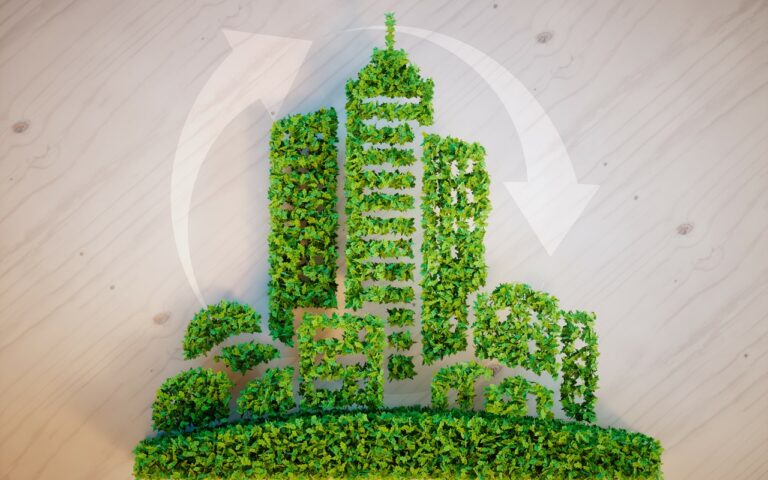Humanity has incited an adverse stamp on our planet that scientists have designated it into a new geological era coined as the Anthropocene. Ignited by urban and industrial breakthroughs, anthropogenic or human-influenced undertakings suited for human needs resulted in the mutation of the earth’s landscape which has proven to be cataclysmic. Our planet is drastically being altered by our influences on nature. We exhaust our land’s resources, build highways on it, dig and run pipes underneath it and trash it with our excessive consumption. Much variegated from previous geological epochs that left us with natural archeological imprints, it is foreseeable in the future that we may be leaving footprints of “manufactured landscapes” from buildings to highways to damaging human trash and discards. Recognizing this possible aftermath, human inventiveness that guaranteed our progress is belatedly growing an ecological consciousness of the need for a more sustainable planet. We have gradually become mindful of our influences on nature which consequently reshaped the way we consume our resources. Over the years, our objectives have changed, and our focus veered towards sustainability for a more eco-friendly environment.
The building industry is one of the major sectors that is increasingly reshaping its role and practices to improve its impact on nature. Given that construction requires a significant amount of material use, it virtually exhausts a massive portion of resources, allowing for the prospect of achieving sustainability in every aspect of the building process, from technologically intelligent and energy-efficient designs to material considerations to advanced construction methods. There is also a favorable potential for resource recovery of construction waste by responsive approaches towards effective waste management, such as reusability and recyclability of scraps, discards, and off-cuts instead of these excesses customarily designated to landfills. Material wastes and excesses in an industry as sizeable as building construction can be valuable, creating occasions for reuse and recycling. Elongating a used material’s life span diverges the number of materials to be harvested from nature as well as deflects waste from adding to the mounting pile of landfills.
In its venture to reform existing environmental circumstances, notable green building programs such as LEED (Leadership in Energy and Environmental Design) provides certification, thrusting further aspirations for the construction industry into a sustainable zone. Substrata Inc., a LEED-certified company, aligns its objectives towards earth-friendly building practices and informed decisions in order to adhere to low-chemical emissions, initiate water and energy conservation as well as maximize utilization of renewable resources in different areas and aspects of construction:
• Painting: Substrata advocates the use of water-based paint to support low-chemical emissions. Paint has toxic contaminants that are hazardous to health and air quality. Water-based paint deters the risk of adverse health effects and does not cause air pollution.
• Plumbing: Substrata uses water-efficient plumbing products such as dual flush toilets for solid and liquid waste as well as faucets with a specified maximum amount of flow rate to save water.
• Electrical: Application of LED lighting and dimmer switches on all rooms minimizes power consumption and promotes longevity, consequently decreasing electricity costs for Substrata clients.
• Rain Barrels and Storm Drain System: Substrata clients conserve water and save on water bills with rain barrels and storm drain systems. Rain barrels serve as reservoirs for rainwater drained from the roof through a downpipe. Water collected from roof gutters is used to irrigate lawns, water gardens, and wash driveways.
• Renewable Materials: Substrata engages in product selectivity by recommending to its clients renewable and recycled materials such as bamboo, which endorses reduction of pollution and greenhouse gas emissions.
• Waste Management: Substrata employs waste management companies to collect and segregate construction debris from demolition works, 50% of which goes to recycling plants.
Substrata is one of the growing companies in the building industry showing maturity towards earth-friendly business engagements. Each sector in commerce adapting the principles of sustainability, when added collectively, become proactive collaborators in a global movement for a greener environment. When looking for a more sensible vision of what the future would be like influenced by an allied global action, humanity’s relationship with nature will be more thoughtful and far-reaching in its effort to build a sustainable planet. After all, there is only one earth we all call our home.
Sources:
De Pencier, Nicholas, Burtynsky, Edwards and Baichwal, Jennifer. The Anthropocene Project.
https://www.theanthropocene.org. 2018.
“Construction Industry Progress Towards Sustainability with Renewable Material”. Recycling Magazine. https://www.recycling-magazine.com/2020/04/14/construction-industry-
progress-towards-sustainability-with-renewable-materials/. 14 April 2020.


The way you discussed the topic with ease and completeness is really amazing. Thanks for this article!